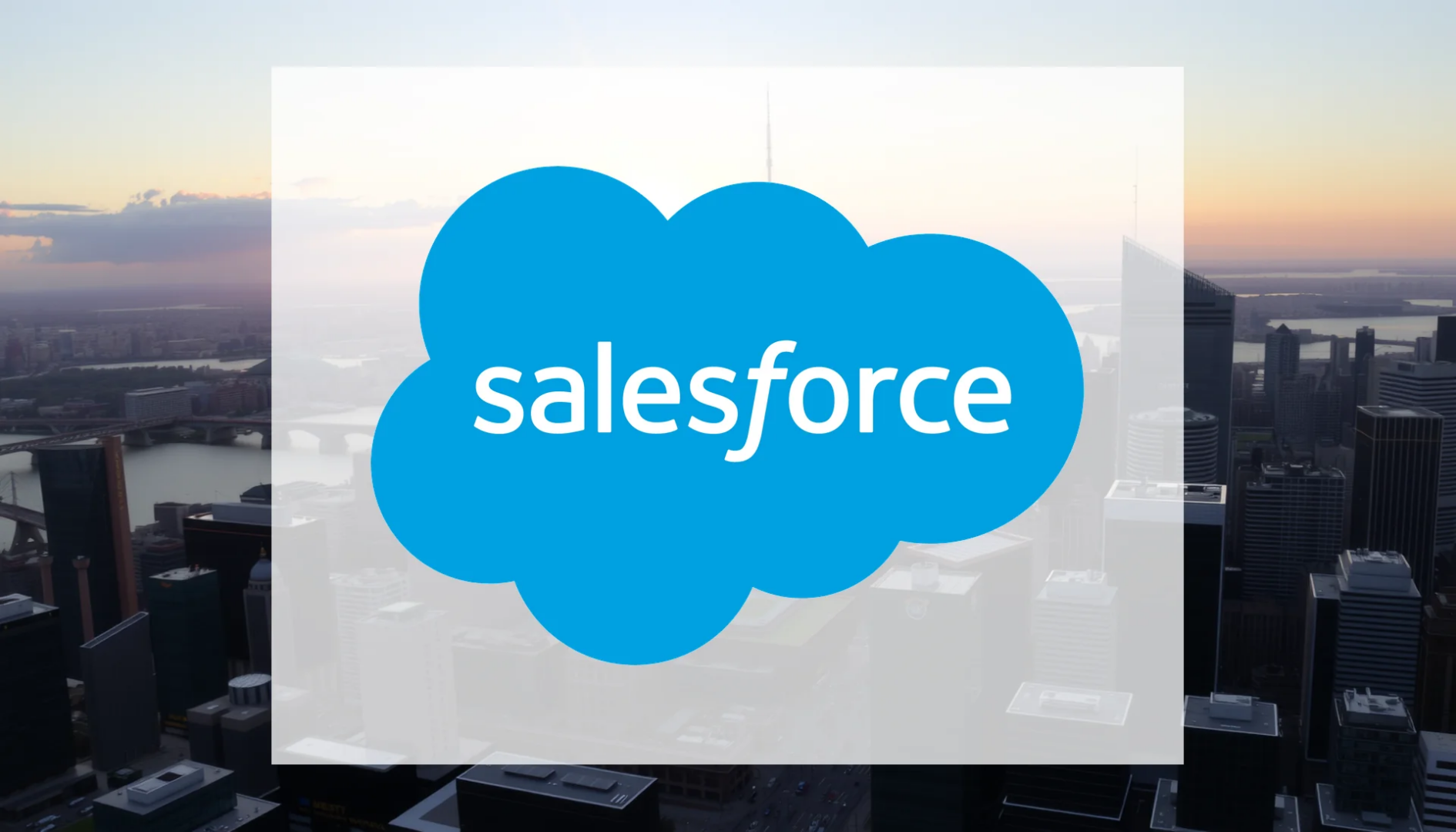Salesforce, long considered a pioneer in artificial intelligence, is confronting a significant challenge as its ambitious vision meets market realities. Despite pouring billions into AI development, the transformative payoff investors anticipated has yet to materialize. The company finds itself at a crossroads, balancing CEO Marc Benioff’s revelation that 4,000 roles have already been replaced by AI agents against noticeable customer hesitation in adopting these new technologies. The central question now is whether Salesforce can deliver on its promises or if its grand technological dream is beginning to fade.
Financial Performance Reveals Underlying Tensions
The company’s most recent quarterly report highlighted this growing dilemma. On the surface, Salesforce surpassed profit expectations, posting revenue of $10.24 billion. However, investor sentiment quickly soured due to a weaker-than-expected forecast for the third quarter, triggering a sell-off that erased over 5% from the stock’s value. This market reaction underscores the heightened scrutiny on Salesforce’s ability to convert its AI investments into sustainable growth.
Agentforce: Measured Adoption Tempers Enthusiasm
At the core of the company’s strategy is Agentforce, a platform designed to automate customer service and sales operations. The platform’s reported metrics are substantial: AI agents are already handling more than one million conversations, leading to a 17 percent reduction in support costs. With over 6,000 paid contracts and a total of 12,500 deals, there is clear market interest.
Yet, a closer look reveals a more cautious picture. The experience of customer 1-800Accountant is telling. While the tax advisory firm plans to cut its seasonal staffing in half by 2026, it opted for a more conservative approach during the critical 2025 tax season. This pattern suggests a broader trend of businesses preferring to thoroughly test AI solutions before committing to large-scale implementation.
Should investors sell immediately? Or is it worth buying Salesforce?
Wall Street’s Divided Sentiment
Analysts are currently split on the stock’s prospects. Some market experts maintain bullish price targets as high as $388, reflecting continued optimism about Salesforce’s long-term positioning. Conversely, skepticism is mounting regarding the timeline and effectiveness of monetizing the hefty AI investments. The shares currently trade at a forward 2026 price-to-earnings ratio of 21 and remain more than 30 percent below their all-time highs—a valuation that some see as a bargain and others view as a warning sign.
Adding intrigue to the situation, activist investor Starboard Value increased its stake by 47 percent in the second quarter. This move is particularly significant given that Starboard previously pressured management in 2022-2023, leading to notable margin improvements.
All Eyes on Dreamforce and Beyond
The upcoming Dreamforce conference in mid-October represents a critical milestone for Salesforce. The event is seen as a pivotal opportunity for the company to demonstrate tangible progress in AI integration and showcase compelling customer success stories. Despite the reassurance of a $20 billion share buyback program, the investment community is waiting for concrete evidence that the AI revolution will generate significant revenue, not just incur costs.
The ultimate verdict may come with the next quarterly results at the end of November. These figures will reveal whether Salesforce is successfully navigating a turnaround or if its AI aspirations will remain unfulfilled for the foreseeable future.
Ad
Salesforce Stock: Buy or Sell?! New Salesforce Analysis from February 7 delivers the answer:
The latest Salesforce figures speak for themselves: Urgent action needed for Salesforce investors. Is it worth buying or should you sell? Find out what to do now in the current free analysis from February 7.
Salesforce: Buy or sell? Read more here...













